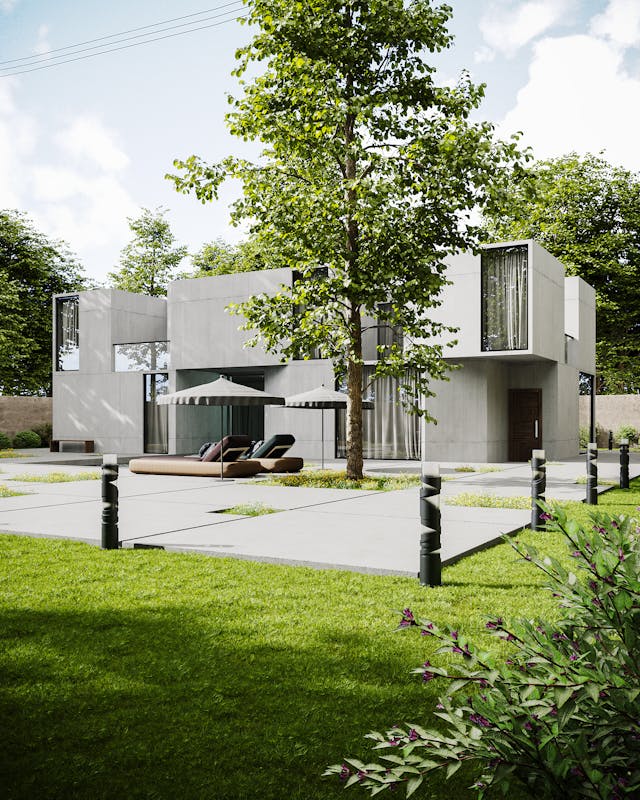Plain soil, organic mulch, and rock are the usual options for commercial landscaping. You should speak with experienced landscape companies Texas to learn about their individual benefits and cons. Some people prefer lighter and softer alternatives in the form of wood while others like the durability and appearance of rock.
Rocks vs. Mulch for Landscape
Organic mulch, soil, and rock are all great choices for adding finishing touches to your landscaping. They add unique textures and vibrant colors. Mulch and rocks also offer more value than just improving aesthetics. They help insulate the soil from windy conditions and reduce temperature fluctuations.
Covering the landscape in organic mulch can suppress weed growth. Mulch also helps protect different soil types by slowing evaporation, retaining moisture, and maintaining a consistent temperature, which is all beneficial for plant growth.
Rocks are great for a minimalist appearance. You can do a lot with a landscape by installing well-situated rocks. Stones and rocks lend a contemporary theme to the overall landscaping. And, they are minimal maintenance. Landscape companies Texas don’t necessarily prefer one over the other. Based on this, professional landscapers may be able to suggest the right one for your needs.
Benefits of Rock Landscaping
- • East maintenance: Rock doesn’t decay and remains in place.
• Fireproof: Rocks can act as a great fire break.
• Variety: Rocks and stones are available in various shapes, sizes, and colors.
• Long-term: You won’t need to replace rocks every year. Pertaining to this, they do cost more initially.
• Fewer insects: Rocks don’t include any decaying matter that draws bugs and pests.
• Erosion resistance: Rocks can prevent soil erosion on sloped yards and hillsides.
Disadvantages of Rock Landscaping
- Stores heat: Rocks reflect heat on the ground and plants
- Zero benefits to plants: Rocks don’t promote plant growth
- Unstable pH: Certain rocks can raise the soil’s alkalinity and acidity
- Manual removal: Moving rocks after installation is tiresome
Benefits of Mulch
- • Less watering: Mulch helps in retaining soil moisture.
• More nutrition for plants: It’s a natural product and adds more nutrition to the soil as it decomposes.
• Fewer weeds: Mulch prevents weed growth by covering the soil completely.
• Ideal temperature: Mulch is a natural insulator and is popular among landscapers for keeping plants warm during winter and cool in the summer months.
• Easy installation: Bags of mulch can be easily transported to the landscape and spread over soil.
Disadvantages of Mulch
Annual replacement: Mulch decay is detrimental to your wallet, as it needs to be replaced after heavy rains and wind.
Excessive: Plants get stressed by deeper than 3 inches of mulch.
Timing is critical: If the mulch is spread too soon, it results in late blooms, and if it is spread too late, weeds will grow.
New weeds: Mulch may carry weed seeds that essentially get spread on the landscape.
When you want to use rock or mulch for landscaping, get an experienced and trusted landscape service provider on your side for the best results.


